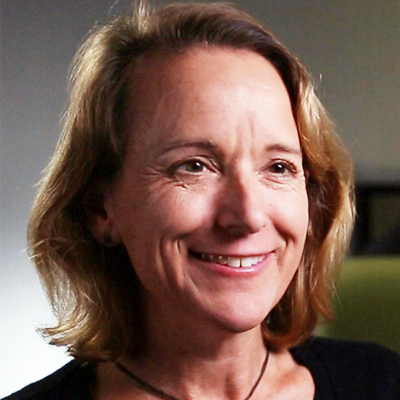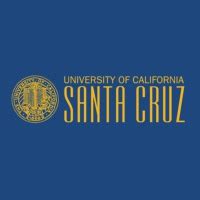Doing useful things with data in responsible ways
We live in a richly interconnected world - links capture how proteins interact; graphs that show how students help each other learn in online courses; networks that collect the accumulated knowledge of the internet. How and what can we learn from these graphs? With the immeasurable amount of data surrounding us, utilizing data more effectively and efficiently has become increasingly difficult. Dr. Lise Getoor, of the University of California, Santa Cruz, utilizes techniques from machine learning, database systems and visual analytics to develop algorithms and tools that can makes sense of large, richly interlinked, heterogeneous data. As one of the founders of statistical rational learning, a research area within machine learning and artificial intelligence, Dr. Getoor develops data science techniques to represent and effectively reason with this form of rich and multi-relational graph data. This research area holds the promise of developing tools to build the large, rich models that are needed to both harness the heterogeneity and scale of today's data and to solve more complex problems than traditional machine learning techniques are capable of handling.
Motivated by this challenging problem, Dr. Getoor's highly collaborative research spans statistical and logical approaches with applications in computational social science, computational sustainability, computational biology, computer vision, computational linguistics, cybersecurity, online learning, personalized medicine, social media, and social networks. Dr. Getoor's success in seeing connections across fields and often operating at the boundaries of academic disciplines, like logic and probability or machine learning and databases, has made her research multidisciplinary and unique. She and her group have developed a variety of new tools and algorithms for inference and learning problems in richly structured settings including socio-behavioral and biological graphs. With a focus on graph data and network data, Dr. Getoor's research has the ability to solve problems such as making the best recommendations for individuals and communities to figure out decisions that will have a positive impact on all of our lives. While her research is data driven, unlike the majority of machine learning techniques, it also allows the specification and integration of domain theory. When coupled, this can achieve new insights in fields ranging from the Social Sciences to Physical Sciences.
Current areas of interest include:
-
Foundations: Dr. Getoor creates new mathematical models that are able to scalably represent relational context for improved personalization and optimizing community outcomes. By combining logic and probability, she is able to reason effectively about large interlinked noisy heterogeneous data. Dr. Getoor and her research group have developed fundamental new mathematical frameworks, and have created and continue to further develop an open-source toolkit, called PSL, or probabilistic soft logic, (imbedded link http://psl.umiacs.umd.edu/ ) which makes her research available to the community.
-
Responsibility: Dr. Getoor's powerful new methods will help her understand their limitations and the dangers, including privacy, that must be addressed. Her tools allow users to understand context and how predictions change depending on the particular lens or filter applied. She hopes to use these tools to understand biases and inequalities thereby harnessing a powerful tool to help the community at large.
- Social Good: Dr. Getoor is interested in applications within computational social science, environment, health, and bioinformatics, a variety of domains where better modeling and use of data can help improve resource utilization and outcomes. Her research contains some of the nuggets required for performing both the personalization and community optimization that are becoming possible when we have the kinds of rich, sociobehavioral data available to us today. She is developing new techniques that work with relational and behavioral structure and data content to solve real-world problems.
Bio
Lise Getoor is a professor in the Computer Science Department at University of California, Santa Cruz. Her research areas include machine learning and reasoning under uncertainty; in addition she works in data management, visual analytics and social network analysis. She has over 200 publications and extensive experience with machine learning and probabilistic modeling methods for graph and network data. She is a Fellow of the Association for Artificial Intelligence, an elected board member of the International Machine Learning Society, has served as Machine Learning Journal Action Editor, Associate Editor for the ACM Transactions of Knowledge Discovery from Data, JAIR Associate Editor, and she has served on the AAAI Council. She was co-chair for ICML 2011, and has served on the PC of many conferences including the senior PC of AAAI, ICML, KDD, UAI, WSDM and the PC of SIGMOD, VLDB, and WWW. She is a recipient of an NSF Career Award and eight best paper and best student paper awards. She was recently recognized as one of the top ten emerging researchers leaders in data mining and data science based on citation and impact, according to KDD Nuggets. Dr. Getoor received her Ph.D. from Stanford University in 2001, her M.S. from University of California, Berkeley, and her B.S. from University of California, Santa Barbara, and was a professor at the University of Maryland, College Park from 2001-2013.
Dr. Getoor was born in Seattle, Washington. At the time, her father, Prof. Ronald Getoor, was in the mathematics department at the University of Washington, and her mother, Ann Getoor, worked on the design of commercial airplanes at Boeing. When she was young, her dad took a position at the math department at the newly formed University of California, San Diego. She grew up in San Diego and was spoilt forever by its temperate climate. She earned her undergraduate degree at the University of California, Santa Barbara; she graduated with a B.S. in Computer Science with the highest honors. She later moved further up the coast of California and went to University of California, Berkeley, where she earned her M.S. in Computer Science. After graduating from Berkeley, she moved to Silicon Valley, and worked for several years at a small company in Palo Alto, Aion Corporation, working on object-oriented expert systems, and later at NASA-Ames, in Mountain View, California. There, she worked on AI techniques for data analysis planning for earth science. In 1995, she returned to school to get her Ph.D. in Computer Science at Stanford University under the supervision of Prof. Daphne Koller. She was awarded a National Physical Sciences Consortium Fellowship, and as part of the fellowship she worked as an intern at Xerox PARC. Upon graduation with her PhD, she accepted a position as an Assistant Professor in the Computer Science department at the University of Maryland, College Park in 2001. She was promoted to Associate Professor in 2008, and promoted to Full Professor in 2013. In 2013, she returned to the west coast and the SF Bay area, accepting a position at a Full Professor in the Computer Science Department at UC Santa Cruz.
Dr. Getoor has a large and thriving research group, Lise's Inquisitive Students (LINQS). She has a strong track record of mentoring students having graduating nine PhD students in just over ten years. The group currently has 12 PhD students, and 2 postdocs, with students from a variety of backgrounds, and currently almost half the PhD students are female.
Dr. Getoor relishes the entrepreneurial aspect of her research. She is able to wear a variety of hats, including that of a mathematician, computer scientist, teacher, mentor, and collaborator!
Website: http://www.soe.ucsc.edu/~getoor/
In the News
Data Science DC
Morgan & Claypool Publisher
18th International World Wide Web conference (WWW)


